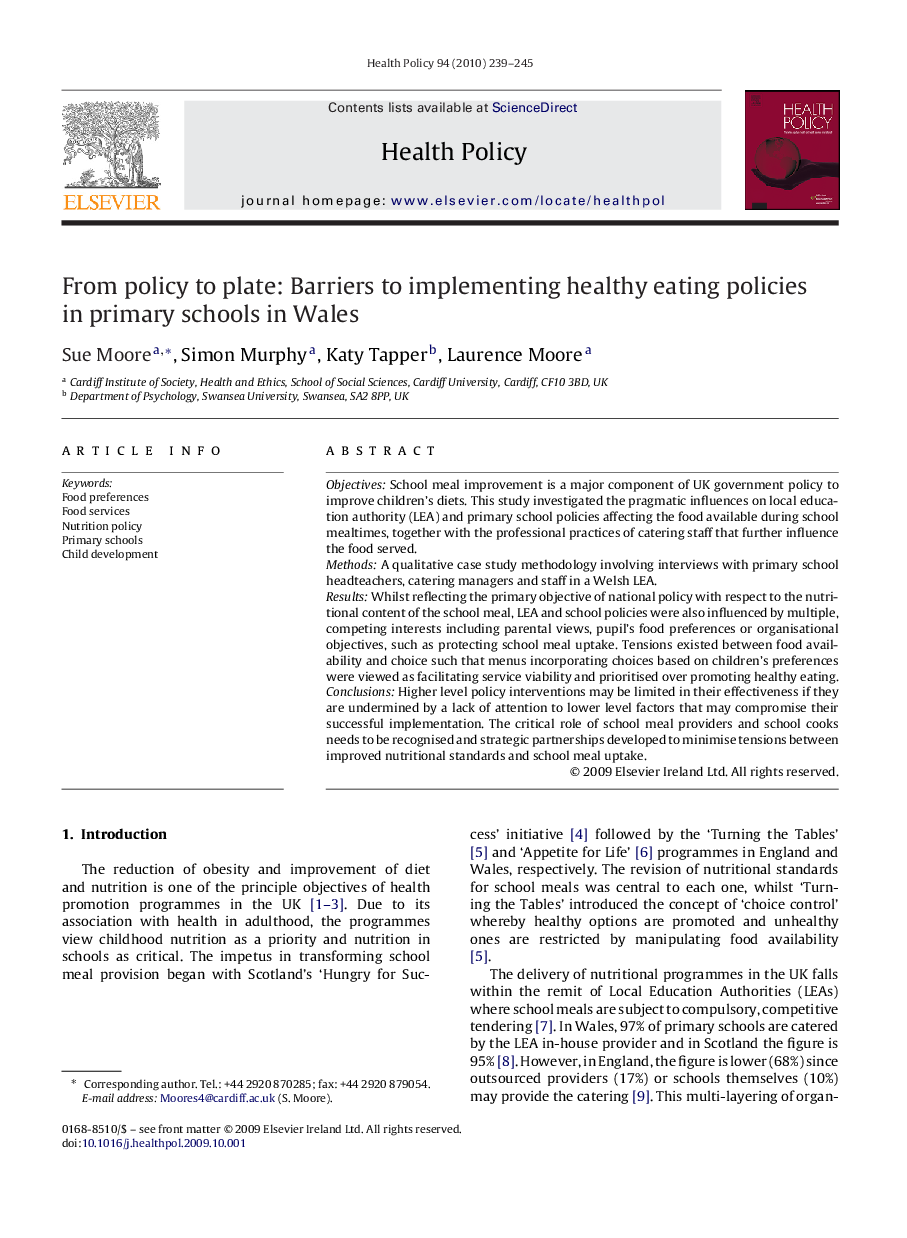| Article ID | Journal | Published Year | Pages | File Type |
|---|---|---|---|---|
| 4198375 | Health Policy | 2010 | 7 Pages |
ObjectivesSchool meal improvement is a major component of UK government policy to improve children's diets. This study investigated the pragmatic influences on local education authority (LEA) and primary school policies affecting the food available during school mealtimes, together with the professional practices of catering staff that further influence the food served.MethodsA qualitative case study methodology involving interviews with primary school headteachers, catering managers and staff in a Welsh LEA.ResultsWhilst reflecting the primary objective of national policy with respect to the nutritional content of the school meal, LEA and school policies were also influenced by multiple, competing interests including parental views, pupil's food preferences or organisational objectives, such as protecting school meal uptake. Tensions existed between food availability and choice such that menus incorporating choices based on children's preferences were viewed as facilitating service viability and prioritised over promoting healthy eating.ConclusionsHigher level policy interventions may be limited in their effectiveness if they are undermined by a lack of attention to lower level factors that may compromise their successful implementation. The critical role of school meal providers and school cooks needs to be recognised and strategic partnerships developed to minimise tensions between improved nutritional standards and school meal uptake.
